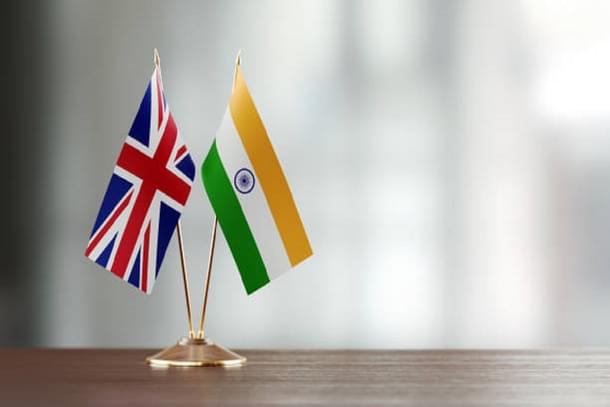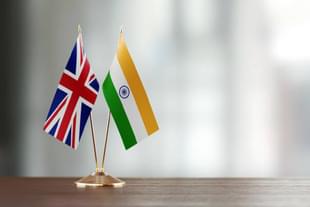News Brief
India-UK Finalise Free Trade Pact: Social Security Waiver, Duty-Free Exports, Market Access And More—Key Highlights
Kuldeep Negi
May 07, 2025, 08:17 AM | Updated 08:17 AM IST
Save & read from anywhere!
Bookmark stories for easy access on any device or the Swarajya app.


In a major development, Prime Minister Narendra Modi and UK Prime Minister Sir Keir Starmer have jointly announced the conclusion of a landmark India–UK Free Trade Agreement (FTA), paving the way for deeper economic integration between the two nations.
The FTA, billed as the most comprehensive trade pact India has ever signed, will grant zero-duty access to nearly 99 per cent of Indian exports to the UK, spanning sectors like textiles, marine products, leather, gems and jewellery, auto parts, and engineering goods.
Prime Minister Modi stated in his social media post on X (formerly twitter), “In a historic milestone, India and the UK have successfully concluded an ambitious and mutually beneficial Free Trade Agreement, along with a Double Contribution Convention. These landmark agreements will further deepen our Comprehensive Strategic Partnership, and catalyse trade, investment, growth, job creation, and innovation in both our economies.”
The agreement is expected to deepen bilateral trade ties, drive job creation, and integrate India more firmly into global value chains.
Here are the key takeaways from the agreement:
99 Per cent of Indian exports will benefit from zero-duty access to the UK market—covering nearly the entire trade value—benefiting sectors such as textiles, marine products, footwear, leather, toys, gems and jewellery, engineering goods, auto parts, and organic chemicals.
Massive services gains: India secures one of the UK’s most ambitious FTA commitments in services, including IT/ITeS, financial, professional, and educational sectors.
3-year social security exemption: Under the Double Contribution Convention, Indian professionals and their employers are exempt from UK social security payments for up to three years, reducing costs and increasing competitiveness.
Eased mobility for Indian professionals: The agreement simplifies movement for business visitors, intra-corporate transferees, investors, and independent professionals like yoga instructors, chefs, and musicians.
Opens new pathways for Indian youth: With the UK being a major global hub for digitally delivered services, this deal creates expanded opportunities for India’s skilled and aspiring workforce.
Commitments on digitally delivered services: India gains ground in high-growth domains like architecture, engineering, computer-related services, and telecom.
Manufacturing and MSME boost: Labour- and technology-intensive sectors, especially MSMEs and startups, are expected to benefit from expanded export potential and supply chain integration.
Non-tariff barriers addressed: Provisions in the FTA ensure unjustified restrictions do not obstruct India’s exports, improving ease of trade.
Transparency and regulatory alignment: The deal promotes good regulatory practices, in sync with India’s domestic reforms aimed at improving ease of doing business.
$60 billion bilateral trade target set to double by 2030, reflecting strong momentum in economic relations.
Union Minister for Commerce and Industry Piyush Goyal Goyal stated that the agreement sets a "new benchmark for equitable and ambitious trade between two large economies".
"It will benefit Indian farmers, fishermen, workers, MSMEs, startups and innovators. It brings us closer to our goal of becoming a global economic powerhouse. This FTA is not only about goods and services, but also about people, possibilities and prosperity. It protects our core interests while opening doors to India’s greater participation in global value chains," he said.
The FTA comes after renewed talks between India and UK after the G-20 Summit in Rio de Janeiro in late 2024, with intensive rounds of negotiation taking place between February and May 2025.
Kuldeep is Senior Editor (Newsroom) at Swarajya. He tweets at @kaydnegi.





